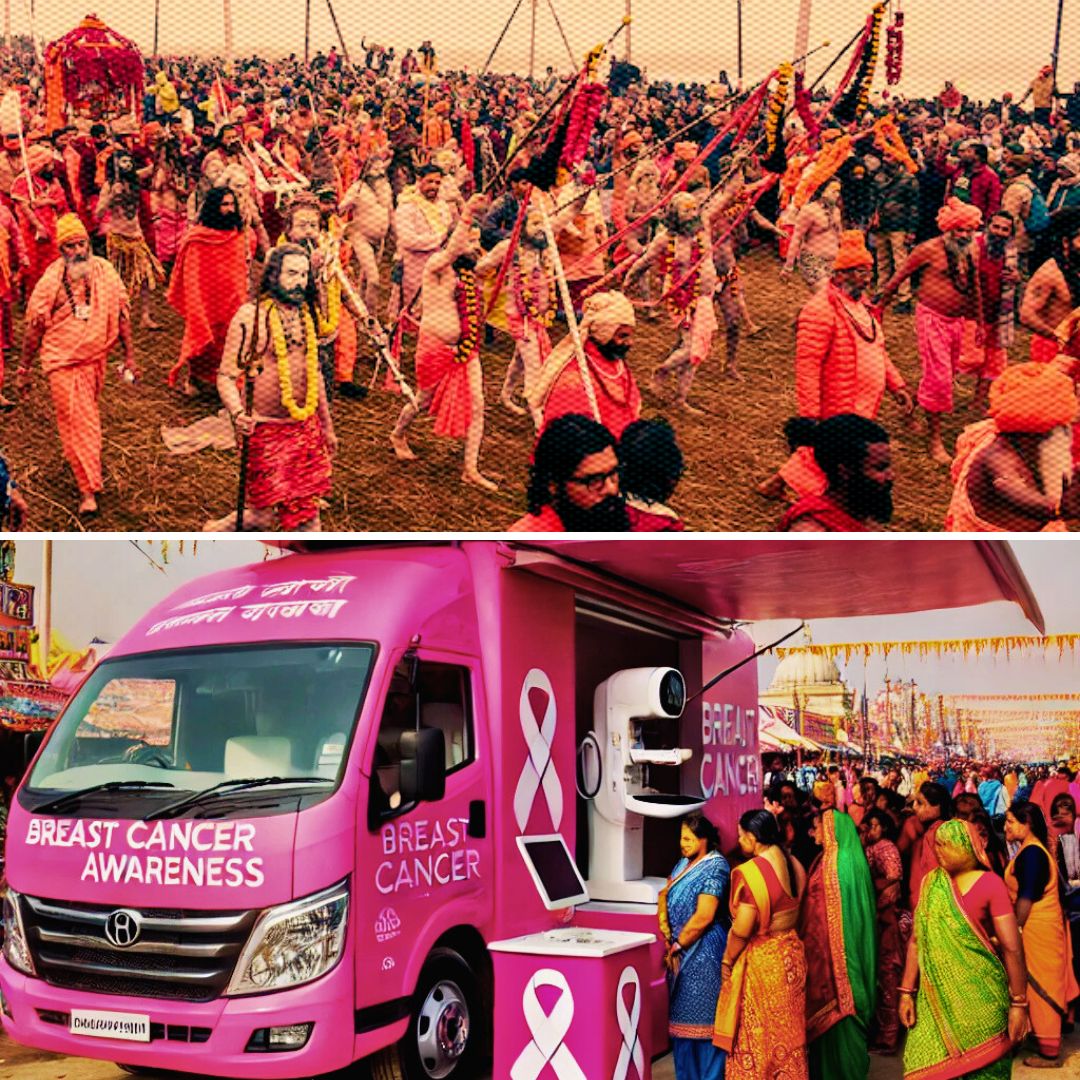A new initiative at the Maha Kumbh in Uttar Pradesh features a pink bus equipped with mammography facilities aimed at detecting breast cancer among women. The project, developed by the Math of Kerala under the guidance of spiritual leader Maa Amritanandamayi, has been funded with an investment of ₹4 crore. The bus is fully equipped with the necessary technology for breast cancer screening, addressing a critical health need during the religious gathering.
Mammography on Wheels
The pink bus, launched at the Maha Kumbh, is designed to provide accessible breast cancer screening services to women attending the event. According to Sant Brahmarishi Eknath from Maa Amritanandamayi Math, the bus includes all essential equipment for effective screening. “This initiative aims to empower women by providing them with timely access to health services,” he stated, highlighting the importance of early detection in combating breast cancer. The bus will be operational throughout the Kumbh Mela, which attracts millions of pilgrims and visitors. With a highly trained medical team on board, women can receive screenings and consultations in a private and comfortable environment.
The initiative is particularly timely, as breast cancer has become one of the leading causes of cancer-related deaths among women in India. The World Health Organization estimates that around 1 in 28 women in India will develop breast cancer in their lifetime. By offering free screenings at such a prominent event, the project aims to raise awareness about the disease and encourage women to prioritise their health.
Contextualising Health Awareness
This initiative comes against the backdrop of rising breast cancer cases in India, where awareness and access to screening facilities remain limited, particularly in rural areas. The Maha Kumbh, a significant religious gathering that occurs every 12 years and attracts millions from across the country and beyond, presents a unique opportunity to reach a large audience and promote health awareness. Previous health initiatives at such events have shown positive impacts on public health outcomes, making this project particularly relevant.
In addition to providing mammography services, the pink bus will also serve as an educational platform. Health professionals on board will distribute informational pamphlets about breast cancer prevention and self-examination techniques. “We want to ensure that women not only get screened but also understand how to take charge of their own health,” added Sant Brahmarishi Eknath. This dual approach aims to foster a culture of proactive health management among women.
Community Response and Future Implications
The launch of the pink bus has garnered positive reactions from both attendees and health advocates. Many women expressed gratitude for the initiative, noting that it provides an invaluable service at a time when they may not have easy access to healthcare facilities. Local health officials have also praised the effort as a significant step towards improving women’s health outcomes in India. “This initiative not only addresses immediate needs but also sets a precedent for future health interventions at large gatherings,” remarked Dr. Anjali Mehta, a public health expert.
Looking ahead, there are plans to expand similar initiatives across other major events and festivals in India. By leveraging large gatherings as platforms for health education and screening, stakeholders hope to create lasting change in public health awareness and accessibility. This proactive approach could serve as a model for integrating healthcare services into community events nationwide.
The Logical Indian’s Perspective
The introduction of a mammography facility at the Maha Kumbh represents a significant step towards improving women’s health in India. We believe that empowering women with knowledge and access to healthcare is crucial for fostering a healthier society. This initiative not only addresses immediate health concerns but also promotes long-term awareness and education about breast cancer.
As we celebrate this innovative approach to healthcare delivery, it is essential to consider how we can further support such initiatives to ensure that every woman has access to essential health services. What steps can communities take to enhance awareness and accessibility of healthcare resources? How can we collectively work towards breaking down barriers that prevent women from seeking timely medical attention? Engaging in this dialogue can help pave the way for positive social change and improved health outcomes for all women across India.











